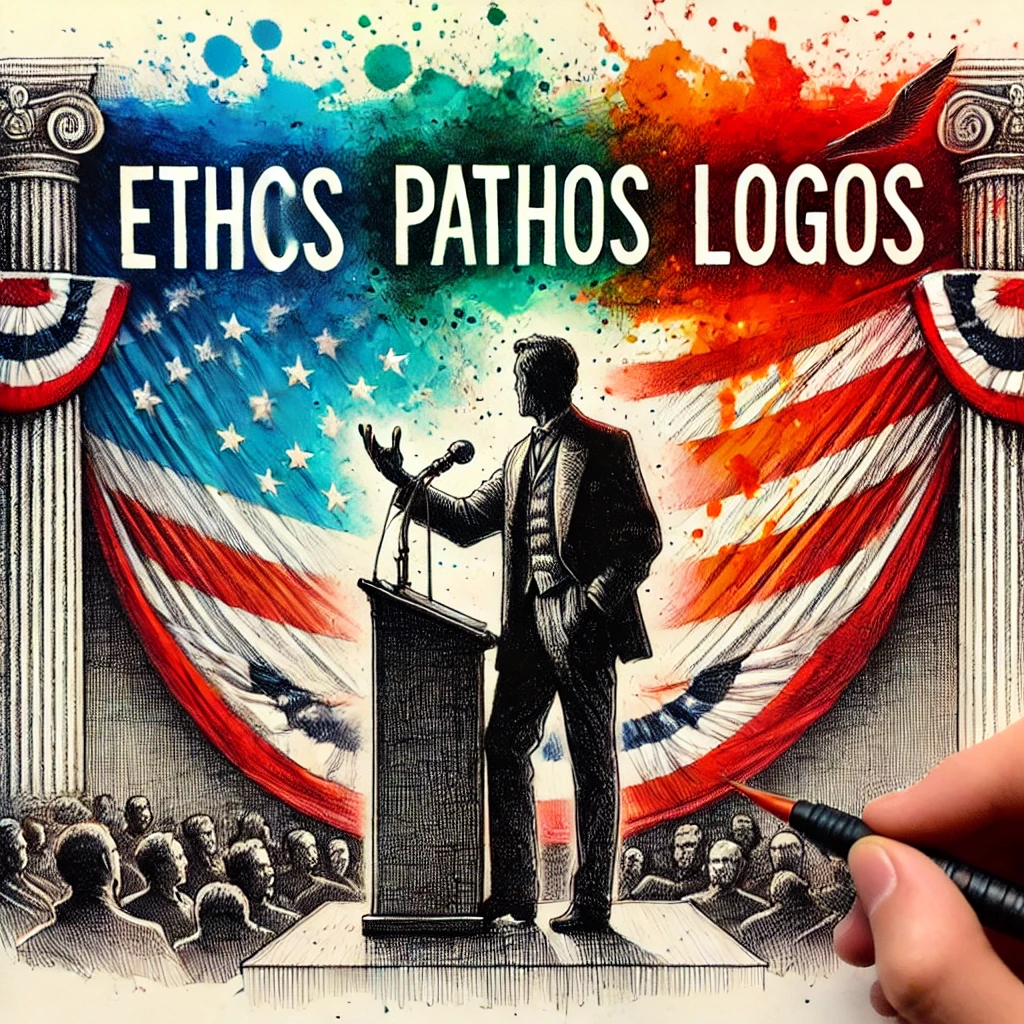The New York Times has recently treated us to an interesting critique of what each of the five keynote speakers at the DNC was wearing. Naturally, much of attention focused on Michelle Obama’s futuristic outfit, which the NYT described as. “militaristic”: ready for the fight. (And to my mind, with a touch of Mad Max, Beyond the Thunderdome).
But what about the language the speakers used? And in particular, the rhetoric and the rhetorical devices: a good old Aristotelian angle to the critique, their actual speeches? Isn’t an analysis of their language just as valid as their sartorial inclinations?
Actually, classic rhetorical devices were much in evidence in the speeches at the recent Democratic Party Convention.
Perhaps not surprisingly, there was much use of anaphora. Michelle Obama repeated phrases to emphasize a point, such as “If we…,” “We cannot…,” and “Do something…” This repetition builds rhythm and reinforced her call to action.
Kamala Harris was also big on the use of anaphora, particularly in her repeated use of the key phrase “ we are not going back”. She also leaned heavily on anecdote from her personal and past profession past to underpin her appeal; making her relatable and connecting her personal history to the broader themes of the speech of justice and fairness.
Barack Obama’s speech had much antithesis: using contrasting ideas to emphasize differences. For example “freedom means that the powerful can do pretty much what they please… we have a broader idea of freedom.” To highlight the moral and ideological differences between Democrats and the Trump alternative.
Tim Waltz featured an interesting use of sports metaphors – the mainstream, good old guy: “It’s the fourth quarter, we’re down a field goal but we’re on offense and we’ve got the ball. We’re driving down the field and, boy, (!) do we have the right team.”
And President Biden leaned heavily use of pathos: employing emotional appeals throughout his speech, particularly when he talked about his personal experiences, such as his loss of loved ones, his family’s journey, and his love for his country. This was an emotional goodbye.
It’s all about Ethos, stupid.
However, across all five keynote speeches, the single most revealing aspect was the use of classical rhetoric is their strategic deployment of ethos. The use of ethos was not just about establishing credibility, but about creating a narrative of moral leadership that transcends personal qualifications. Each speaker, through their stories, experiences, and explicit appealed to character and values, implicitly positioning themselves and their vision as the moral and ethical choice in a polarized political landscape.
Subtle Blending of Ethos with Pathos and Logos
All five speakers used ethos ( ie establishing credibility) by weaving it into a moral narrative. They do this by aligning their personal stories with larger ethical themes—justice, fairness, democracy, and compassion. This blending of ethos with pathos creates an emotional resonance that frames their credibility not just as a matter of competence but as a moral obligation.
For example, Kamala Harris’s stories of her legal career are not just about her qualifications but about her deep-seated belief in justice and equality. Similarly, Joe Biden’s reflections on his family and career are framed as a testament to his unwavering commitment to democracy and decency.
And when Biden discusses the economic achievements of his administration, he frames them as not just pragmatic successes but as moral victories for the middle class and marginalized communities: he reinforces the idea that their policies are not just effective but also morally right.
Political Commentary
This sophisticated use of ethos, particularly its integration with pathos and logos, makes a powerful political comment: in the current political climate, leadership is not just about competence or policy; it is fundamentally about moral character
They are using ethos to make a broader political statement about the nature of leadership. In doing so, they implicitly argue that the choice in the upcoming election is not just between different policies or ideologies, but between different moral visions; framing the election as a referendum on the ethical direction of the nation.
But as Dr Dealgood reminds us all in Mad Max Beyond the Thunderdome: “All our lives hang by a thread. Now we got a man waiting for sentence. But ain’t it the truth: you take your chances with the law, justice is only a roll of the dice. A flip of the coin. A turn… of the Wheel”.




